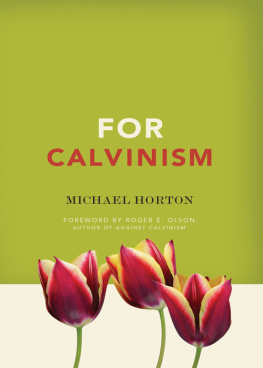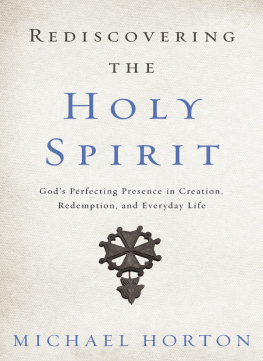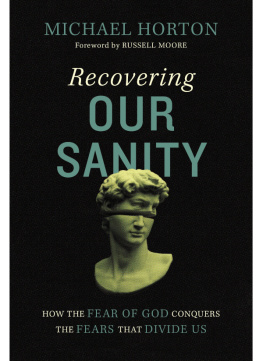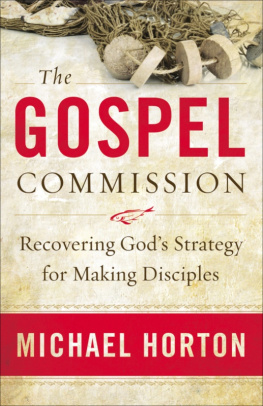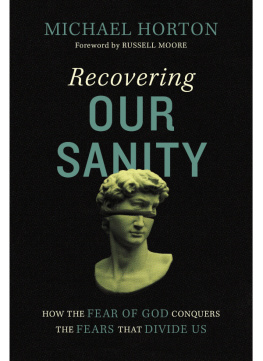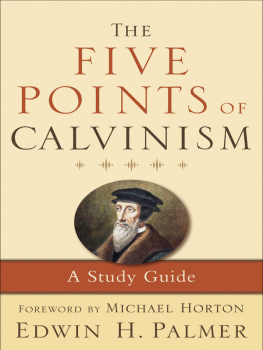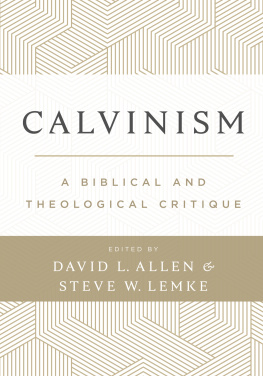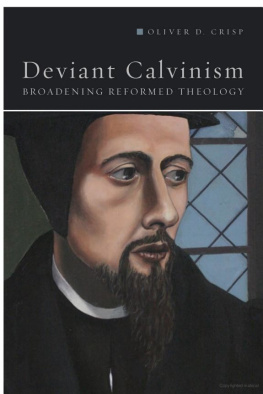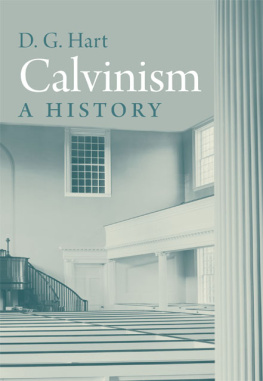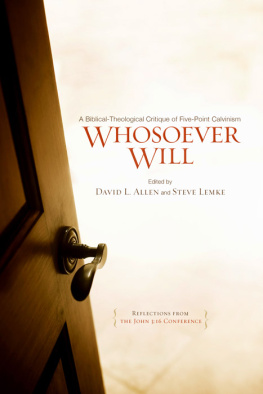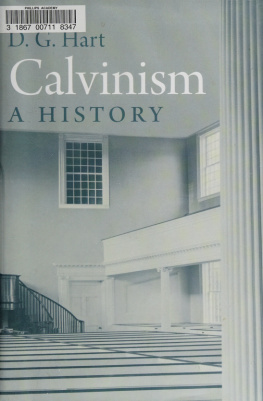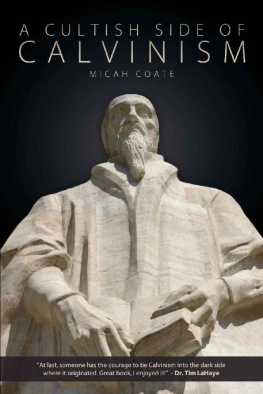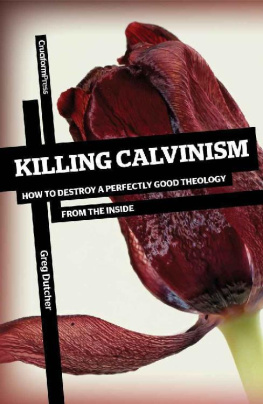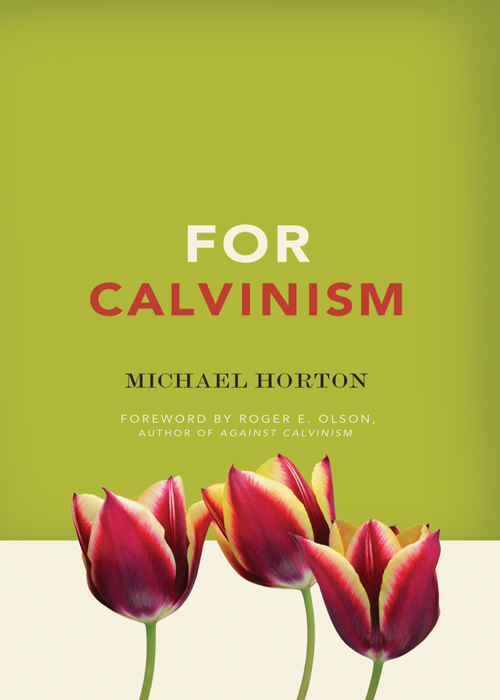To my mother, who taught me to expect to find wonderful truths and not a few surprises in the Scriptures
INTRODUCTION
CALVINISM AND ARMINIANISM: WHY BOTHER?
Calvinists are the chosen frozen. Become one and youre sure to lose not only your evangelistic and missionary zeal, but also the heartfelt joy of a personal relationship with Christ. The pursuit of holiness will wane. Calvinism is a religion of the head, not the heart or the hands.
Many people have certain assumptions about what Calvinism will lead to on the basis of misunderstandings about what it teaches and therefore where it logically leads. Calvinism ranks knowing above feeling and doing, doctrine over life, it is often assumed. Underscoring Gods sovereignty, human sinfulness (even that of believers), justification by an imputed righteousness, and utter dependence on grace surely undermines personal responsibility. And if you stress Gods sovereignty and grace too much, youll not only stop evangelizing; youll stop praying, praising, and pursuing holiness. Its a recipe for disaster.
But the actual history of Calvinism including what Calvinists have consistently written, preached, prayed, sung, and witnessed doesnt fit the stereotypes. Of course, one may encounter cold and joyless Calvinists. But is that a generally valid characteristic or is it a caricature? And when people run into Calvinists of this sort, is it a reflection of personal characteristics and conditions or of the doctrine itself? And if Calvinists have in fact been in the vanguard of evangelism and missions, as Ill point out later, then is it possible that critics have misunderstood the logic and implications that they ascribe to Calvinism?
Critics have frequently confused Calvinism with hyper-Calvinism, and sometimes contact with hyper-Calvinists proves the caricature. Often, bowled over by a sense of Gods majesty and grace, new Calvinists enter what we call the cage phase. Like any new convert, we can be hard to live with when weve just experienced a radical paradigm shift. Why werent we taught this when it seems so evident in Scripture? How can our fellow Christians ignore these doctrines and even squelch any discussion? In this condition, enthusiasm can turn to frustration and even to arrogance and divisiveness. Only superficially acquainted with Reformed teaching at this stage, we swing from one extreme to the other, misunderstanding and misrepresenting these doctrines. This often proves the caricature. No doubt, many critics of Calvinism have encountered this, and it puts them off from taking a second look at the position.
However, mainstream Calvinism has been associated with personal renewal as well as doctrinal reformation. In fact, Reformed piety has resisted the false choice between head and heart, doctrine and life, church and individual. In the sixteenth and seventeenth centuries, both Lutheran and Reformed traditions reflected a concern for doctrine and life as one integrated pattern. Like the Reformers themselves, the evangelical movement was deeply impressed with the significance of Christian truth for daily living. That is why the Bible was translated into the common languages of the people and widely distributed to parishes and households, along with catechisms, prayer books, and psalters.
Grace was not just a doctrine but a personnamely, God himself, in Jesus Christ, clothed in the gospel. Hearts were filled with thanksgiving and joy in the presence of a holy God who had forgiven, justified, and renewed sinnerswith the assurance of resurrection in the age to come. It was not just a collection of great ideas that turned Christendom upside down, but a radical experience of grace. It changed the way people related to God and to each other. And this is the experience of many Christians today as well.
In the United States, historians and sociologists have long observed the disintegration of the Reformation and particularly, Calvinist presuppositions that guided many Christians in colonial America. With the Second Great Awakening (17901845), especially under the influence of revivalist Charles Finney, these presuppositions were replaced with a characteristically modern (and American) confidence in the rugged individual. At the end of his teaching stint in the United States, before returning to Germany where he would eventually be executed under the Nazi regime, Lutheran theologian Dietrich Bonhoeffer described America as Protestantism without the Reformation. As recently as the 1980s,
So it was surprising to many in 2009 when Time magazine named The New Calvinism as the third of ten trends shaping the world today. Clearly, the death of Calvinism has been somewhat exaggerated. In this book, I explore the biblical historic roots of the doctrinal beliefs commonly associated with Calvinism, offer some context on the renewal of interest in these doctrines of gracethose unique emphases of the tradition that shape life and thought and finally, hope to encourage others to consider its rich resources for faith and practice in the twenty-first century.
Though it is a mistake to reduce the beliefs of Calvinism to five emphases, it is true that most of the objections and attacks on Calvinism focus on certain doctrinal distinctives, sometimes known as the five points of Calvinism. The five points are as follows:
Total depravity: Our bondage to sin in Adam is complete in its extensiveness, though not in its intensity. In other words, were not as bad as we can possibly be, but original sin has thoroughly corrupted every aspect of our existence including the will.
Unconditional election: Out of his lavish grace, the Father chose out of the fallen race a people from every race to be redeemed through his Son and united to his Son by his Spirit. This determination was made in eternity, apart from anything foreseen in the believer.
Particular redemption: Christs death is sufficient for the whole world, but secured the redemption of the elect.
Effectual grace: The Holy Spirit unites sinners to Christ through the gospel and faith is the effect, not the cause, of the new birth.
Perseverance of the saints: All of those chosen, redeemed, and regenerated will be given the gift of persevering faith, so that not one will be lost.
Many people know these five points by the TULIP acronym. While intending no disrespect for the noble flower, I prefer (for reasons that I will defend) particular redemption and effectual grace to the terms limited atonement and irresistible grace. This book will focus on explaining, defending, and clarifying these five points as distinctive elements of the Calvinist doctrinal position. Instead of using the acronym TULIP, Ill simply refer to these doctrinal emphases as the five points, the Calvinist distinctives, or (my personal favorite) the doctrines of grace.
WHATS AT STAKE?
A recent Pew study reported that atheists and agnostics know the Bible and Christian doctrine better than evangelicals. Mormons and Jews came in second. This simply corroborates other surveys that point up the urgency of basic instruction in our churches today. Christians need to know what they believe and why they believe it.
Of course, the deeper we wade into the reservoir of Christian faith and practice, the more we encounter debates that have not only brought clarity and unity, but also debate and division. The Calvinist-Arminian debate is one of those long-running conversations. Touching as it does on so many questions at the heart of our understanding of God, ourselves, and salvation, it is not surprising that this controversy continues to provoke interest and opposition.

